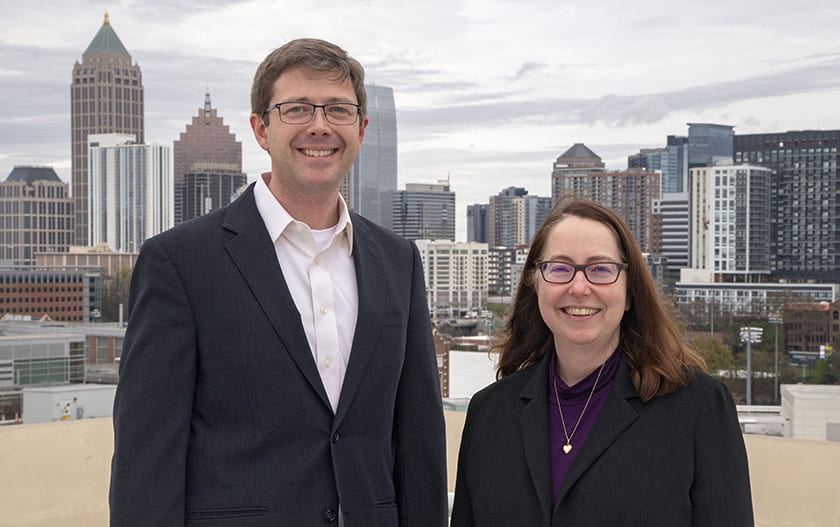
Welcome from the directors
Over the last five years, led by quiet startup companies and exploratory work by the aerospace industry and research organizations, several prototype electric vertical takeoff and landing (eVTOL) aircraft capable of carrying passengers have been developed. What began as a few bold bets by a handful of organizations has now become the focus of widespread investment, not just by traditional aerospace companies but also by new entrants, including Silicon Valley unicorns and automotive companies who aspire to position themselves at the forefront of this new technology.
Why the investment? The answer is that eVTOLs — and similar conventional- and short- takeoff and landing aircraft — show great promise in offering an economically attractive way to save our most valuable commodity: time. By accessing the “third dimension” and flying over road traffic at high speeds, new forms of urban air mobility (UAM) may shorten commutes and other cross-city trips dramatically, resulting in more time for productive work or leisure and allowing people to live farther from where they want to go. The value proposition of “air taxis” and other UAM services is enormous, particularly as cities and their congestion continue to grow. Additionally, UAM and similar new forms of regional aviation may offer compelling benefits by connecting suburban and rural communities to urban centers, potentially enabling increased wages for rural residents and encouraging rural growth and development.
In this context, and recognizing the opportunity for society, we have formed the Georgia Tech Center for Urban and Regional Air Mobility (CURAM). Our goals are to conduct research to overcome the technical challenges of ubiquitous urban and regional flight and to educate the workforce that will bring these new modes of transportation to fruition. CURAM serves as a focal point for integrating Georgia Tech’s deep expertise across the engineering disciplines and for leveraging our considerable strengths in policy, planning, and economics. Our work will focus not only on the technologies needed to enable autonomous electric aircraft but also on the technologies and strategies to integrate aviation infrastructure and aircraft operations more holistically into the fabric of cities, respecting concerns for noise, safety, privacy, and equity.
We invite you to join us on our journey of exploring and enabling urban and regional air mobility.
Our mission
The mission of the Center for Urban and Regional Air Mobility (CURAM) at the Georgia Institute of Technology is to lead research and education related to the emergence of urban air mobility and new forms of regional aviation. These new modes of aviation, enabled by aircraft with electrified propulsion and increasingly automated systems, offer the potential for great economic value to society. We pursue precompetitive research intended to overcome barriers to technical feasibility, regulatory acceptability, economic viability, and public acceptance in order to achieve safe, desirable, and equitable means of urban air mobility (UAM) and low-cost regional air transportation.
CURAM serves as the focal point at Georgia Tech to organize interdisciplinary research in UAM and regional flight by leveraging the Institute’s considerable expertise in all engineering disciplines, policy, city planning, and economics. We develop and curate facilities and research products including simulation models, demand forecasts, technology test laboratories, and flight demonstrator testbeds. CURAM collaborates with industry partners as well as local, state, and national agencies to identify and carry out research and educational initiatives that support their needs, and we identify opportunities to conduct demonstration projects in metro Atlanta and throughout the State of Georgia.
